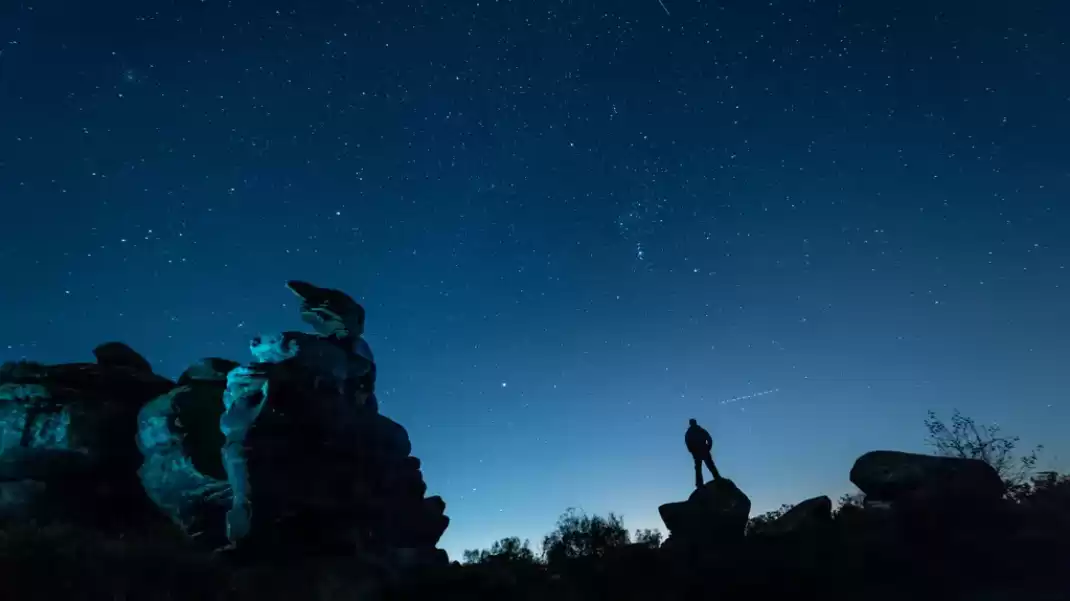'Watch Orionid meteor shower illuminate UK night sky: tips for viewing'
Stargazers are in for a treat this weekend as debris from Halley's Comet will light up the night sky, producing up to 25 meteors every hour.
Get ready for an exciting weekend of stargazing! This weekend, the night sky will be illuminated by the dazzling Orionid meteor shower, which is caused by debris left behind by Halley's Comet.
The Orionid meteor shower takes place throughout the month of October, but it is expected to reach its peak on Saturday night. During this peak, stargazers can expect to see up to 25 meteors per hour. The shower will continue to be visible until the early hours of Sunday morning.
What makes the Orionids particularly special is that the meteors are actually fragments of Comet 1P/Halley, more commonly known as Halley's Comet. While the comet itself only visits Earth once every 75 to 76 years, this annual meteor shower, which originates from the Orion constellation, offers a chance to witness a piece of its cosmic beauty.
As Halley's Comet travels along its path around the sun, it leaves behind a trail of tiny debris. When these debris enter Earth's atmosphere, they travel at incredible speeds of around 41 miles per second, creating the stunning meteor shower that we can observe.
Dr. Minjae Kim, a research fellow at the department of physics at the University of Warwick, explains that the Orionid meteor shower is a celestial event that can be seen worldwide. It begins on October 2 and continues until November 7, with its peak occurring between the nights of October 20 and 22, typically from midnight until dawn. However, even before and after the peak date, it is possible to catch a glimpse of this meteor shower.
This shower holds a special place in the annual calendar of celestial events. Not only is it breathtakingly beautiful, but it also has a connection to one of the most famous comets in history - Halley's Comet. Halley's Comet only visits Earth once every few decades, but each time it does, it leaves behind a trail of cosmic debris, including dust and grit. The Orionid meteor shower provides a unique opportunity to witness this debris and experience a taste of the comet's magic.
The best part is that you don't need any special equipment to enjoy this spectacle. The Orionids can be seen with the naked eye from anywhere in the sky. All you need is a little patience, a clear sky, and a spot away from street lights and other sources of light pollution.
Whether you're in the northern or southern hemisphere, you have until November 7 to witness the Orionid meteor shower. So mark your calendars, find a cozy spot, and prepare to be amazed by the wonders of the night sky.











Comments on 'Watch Orionid meteor shower illuminate UK night sky: tips for viewing'